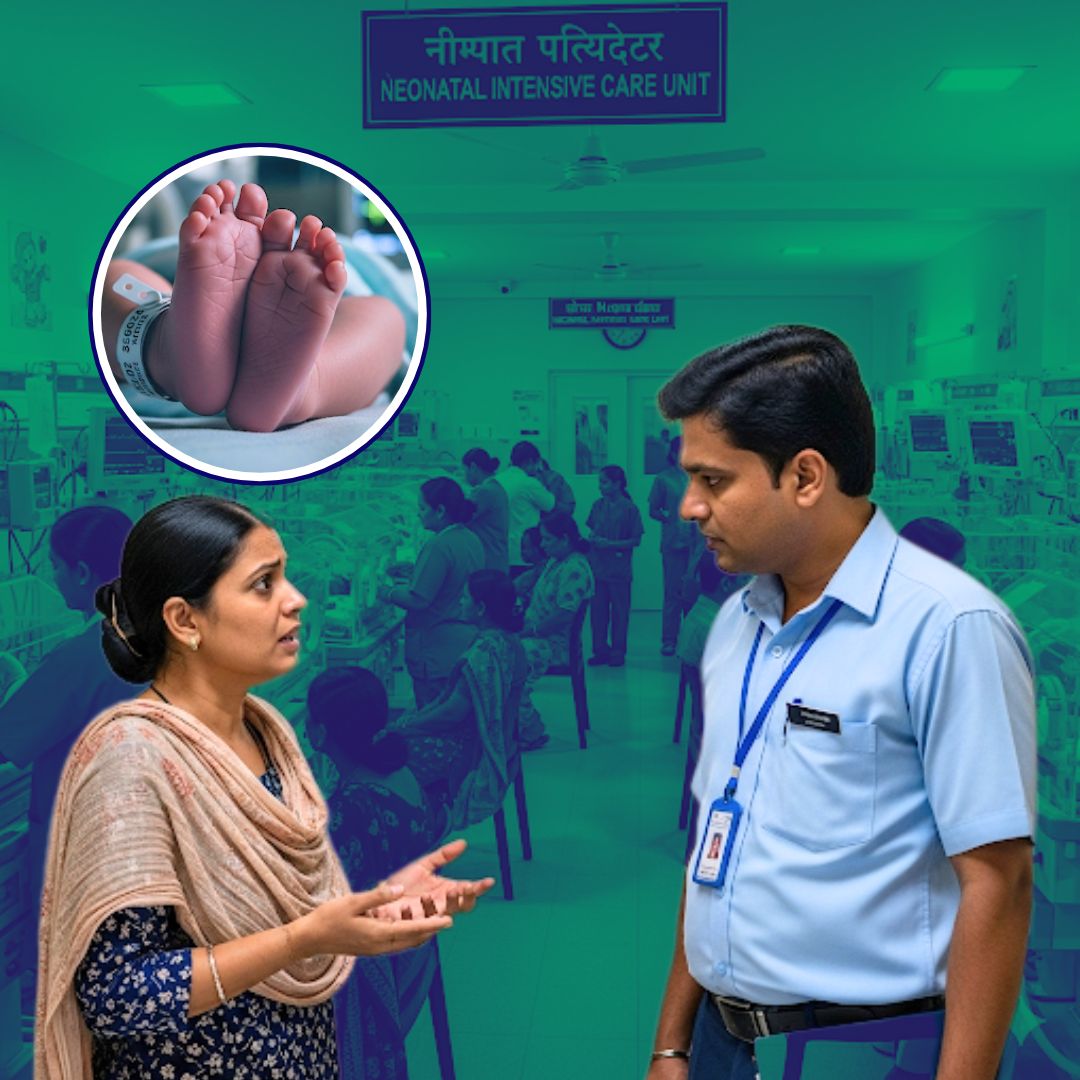At Indore’s Maharaja Yeshwant Rao (MY) Hospital, a shocking incident has exposed serious lapses in healthcare safety and hygiene, as two newborn babies admitted in the neonatal intensive care unit (NICU) were bitten by rats on their fingers.
The infants, already battling congenital complications, were transferred to another facility where they continue to receive specialised care under close supervision. Hospital authorities confirmed the incident and acknowledged staff negligence in addressing the persistent rodent menace. This incident has sparked widespread concern and debate about the state of public healthcare infrastructure and safety protocols in government hospitals.
Disturbing Incident Highlights Staff Negligence and Rodent Problem
The incident occurred on two consecutive days in the NICU of MY Hospital, the largest government hospital in Madhya Pradesh. Both babies were born with congenital anomalies requiring constant monitoring and critical medical support. Medical Superintendent Dr Ashok Yadav admitted the unfortunate occurrence, saying, “This incident has come to my notice.
Two newborns were bitten on their fingers. The staff should have been alert to the rat issue.” Sources revealed hospital staff had reported frequent sightings of rats within the ICU premises but said last major pest control was conducted years ago. Parents were reportedly not formally informed about the bite injuries to avoid panic, raising ethical and transparency concerns.
While doctors have assured that the babies are stable and receiving treatment, the event has profoundly shaken faith in hospital safety.
Systemic Healthcare Challenges and Persistent Infrastructure Gaps
This incident is symptomatic of broader systemic issues plaguing public hospitals. MY Hospital, often overcrowded and struggling with infrastructure and sanitation maintenance, has long faced challenges including rodent infestations.
Experts attribute the rodent presence partly to inadequate pest control and the unhygienic practice of bringing outside food into hospital wards. The hospital administration has since committed to an urgent pest control drive and infrastructure audit.
Meanwhile, the opposition has criticised the government, calling the incident a glaring indictment of the neglect in healthcare delivery. The incident also recalls disturbing recent cases in Madhya Pradesh, such as rats damaging corpses in mortuaries, highlighting urgent public health concerns that require immediate attention.
Broader Implications for Patient Safety and Accountability
Ensuring safety in healthcare facilities, especially for the most vulnerable such as newborns, demands vigilant staff, effective infrastructure, and proactive management. Failures to address pest control and hygiene can jeopardise patient health and violate basic medical ethics.
The hospital’s initial reluctance to inform families fully about the injuries further complicates trust-building. This case underscores the vital importance of transparency, accountability, and prompt remedial action in public healthcare. It also stresses the need for sustained investment to strengthen facility management beyond crisis moments, to pre-empt preventable harm to patients.
The Logical Indian’s Perspective
The horrifying rat bites in a neonatal ICU thrust into sharp relief the urgent need for a paradigm shift in how public healthcare safeguards its patients. Vulnerable newborns deserve a sterile, safe environment free from the threats of neglect and infection.
Public institutions entrusted with healing must prioritise dignity, safety, and accountability above all. As citizens and stakeholders in this system, fostering constructive dialogue and demanding systemic reforms is imperative to protect those who cannot protect themselves.












